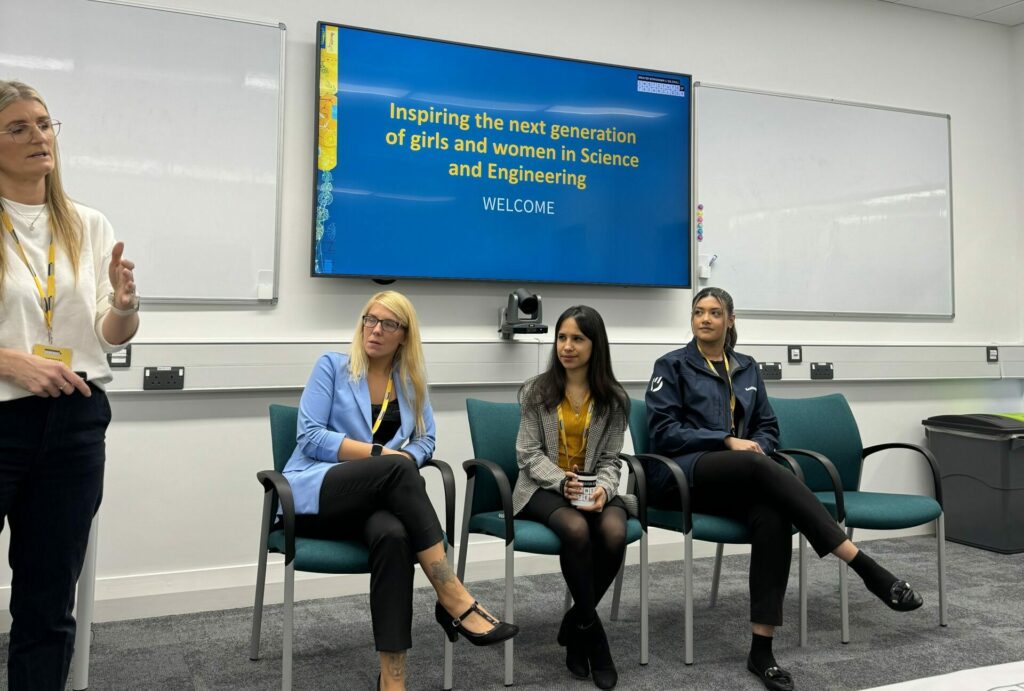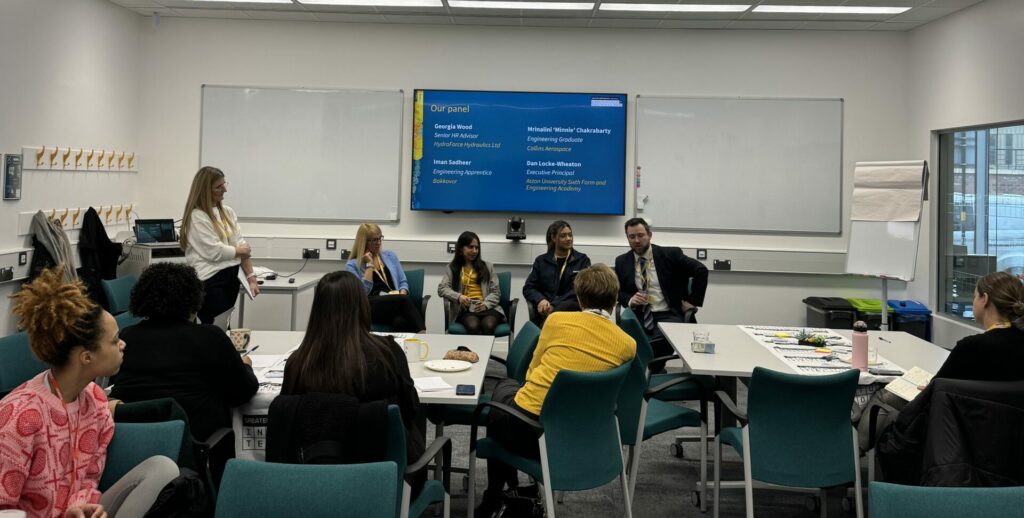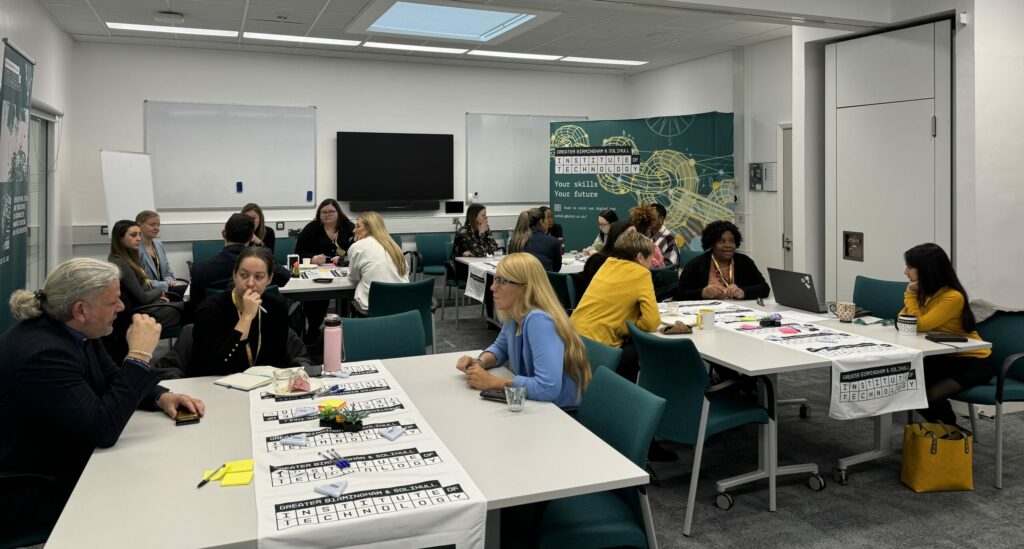In a bid to celebrate National Apprenticeship Week (NAW) and pave the way for the upcoming International Day of Women and Girls in Science, the Greater Birmingham and Solihull Institute of Technology (GBSIoT) recently hosted a remarkable event alongside BMet. The occasion, aptly titled “Inspiring the Next Generation of Girls & Women in Science and Engineering,” brought together a diverse array of voices and perspectives to advocate for greater gender diversity in STEM fields.

The day commenced with a dynamic Panel Discussion and Q&A session, featuring individuals from various sectors. Among the panelists were Georgia Wood, HR Manager at HydraForce Hydraulics Ltd; Mrinalini Chakrabarty, an Engineering Graduate from Collins Aerospace; Iman Sadheer, an Apprentice at Bakkavor; and Dan Locke-Wheaton, Executive Principal at Aston University Sixth Form and Engineering Academy. This blend of employers, graduates, educators, and students offered invaluable insights drawn from their personal journeys and professional experiences.
The urgency of events like these is underscored by stark statistics. According to data from the Higher Education Statistics Agency (HESA), at the current rate of change, it’s estimated to take 70 years to achieve parity of females in engineering and technology courses. This sobering statistic highlights the persistent gender disparity in STEM fields, necessitating proactive measures to address the imbalance.
Similarly, the Women in Science and Engineering (WISE) organisation reports that while female A-level entries in core STEM subjects remained relatively stagnant at around 43% in 2022 and 2023, only 27% of students graduating in core STEM subjects are women or non-binary. Moreover, despite efforts, only 10% of the engineering workforce comprises women (WISE). These statistics shed light on the systemic challenges and barriers that hinder female participation and representation in STEM professions.

However, amidst these challenging statistics, a survey conducted in 2022 revealed a glimmer of hope – 95% of female students believe that the gender imbalance in IT and engineering industries will change within the next decade. This optimism underscores the importance of initiatives like “Inspiring the Next Generation of Girls & Women in Science and Engineering,” which aim to empower and equip young women with the skills and confidence to pursue STEM careers.
The event’s attendees, which included local schools, employers, community stakeholders, and T-Level students, recognised the critical need for proactive measures to address these disparities. Key findings from the event highlighted the necessity of engaging parents, showcasing career pathways, and fostering partnerships to encourage girls into STEM fields.
Micky Burke, Operations Director at GBSIoT, stated:
“It was such an inspiring and energising morning, with so much still do in this space, the passion and commitment of colleagues in the room left me with no doubt that together in partnership we really can make a difference, resilience is the key!”
Moreover, participants stressed the urgency of providing better career advice and pathway information for young people. Engaging them in STEM as a viable career option from a much younger age was identified as a crucial strategy to bridge the gender gap in STEM fields. By hosting events like “Inspiring the Next Generation of Girls & Women in Science and Engineering,” GBSIoT and BMet are playing a pivotal role in igniting young minds’ passion for STEM and equipping them with the knowledge and resources to pursue rewarding careers in these fields.

In conclusion, the collaborative effort between GBSIoT and BMet serves as a beacon of hope in the journey towards gender equality in STEM. By leveraging insights from panels, engaging stakeholders, and championing initiatives to inspire and empower girls and women, these events catalyse tangible progress in creating a more inclusive and equitable future in STEM. Through continued advocacy, education, and collaboration, we can collectively dismantle barriers and unlock the full potential of the next generation of female STEM leaders.

